Medicare Marketing in 2025: A Proven Guide for Success
For Independent Agents & Agency Owners
Discover the most reliable Medicare marketing strategies for building your agency in 2025.

By John Ellis | on Nov 26, 2024
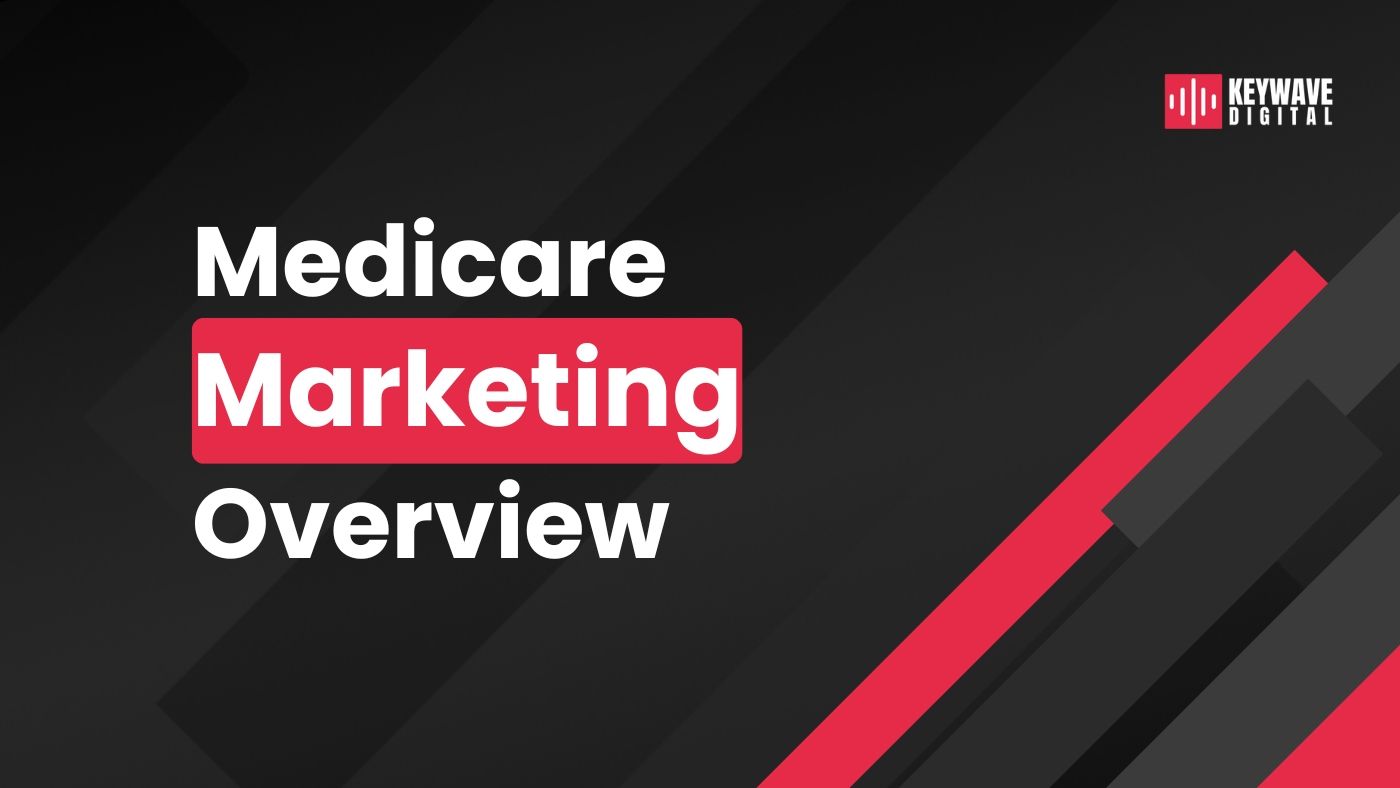
Table of Contents
1. Does Your Medicare Marketing Strategy Need an Upgrade?
2. The Foundation of Effective Medicare Marketing
3. Evaluating Paid Advertising Channels
4. The Untapped Potential of Email Marketing
5. Why Ethical Marketing Matters
6. Building a Comprehensive Medicare Marketing Strategy
7. Case Study: Transforming an Agency Owner's Growth with Seminar Marketing
Does Your Medicare Marketing Strategy Need an Upgrade?
Are you struggling to stand out in an increasingly crowded Medicare market? With millions of Americans turning 65 every year, the demand for Medicare solutions has never been higher—but so has the competition.
Many agents find themselves caught in a cycle of using outdated marketing tactics, only to see inconsistent results and wasted dollars. The truth is, what worked in the past—like direct mail or generic ads—is no longer enough to build a thriving book of business.
So, how can you reliably attract high-quality leads, stand out from the crowd, and grow your business in a sustainable way?
In this guide, we’ll uncover the proven Medicare marketing strategies that work today. Whether you’re new to the industry or a seasoned agent, you’ll gain actionable insights to help you:
- Build a solid online foundation to capture local traffic and referrals.
- Leverage seminar marketing for consistent, qualified leads.
- Avoid the pitfalls of ineffective or spammy tactics that waste time and money.
By the end of this post, you’ll have a clear roadmap to confidently market your Medicare services and create a system that works for you—not against you.
Are you ready to transform your Medicare marketing strategy? Let’s dive in.
The Foundation of Effective Medicare Marketing
Before diving into advanced tactics, it’s essential to build a strong foundation for your Medicare marketing strategy. Without these key elements, even the best campaigns won’t deliver long-term success.
1. Professional Website: Your Digital Front Door
Your website is the cornerstone of your online presence. It’s often the first impression potential clients have of your business, so it needs to:
- Look Modern: Outdated designs can deter visitors and undermine trust.
- Perform Well: Ensure your site loads quickly and is easy to navigate on any device.
- Convert Visitors: Use clear calls-to-action (CTAs) like “Book a Consultation” or “Learn More About Medicare Options.”
SEO Tip: Include localized keywords in your meta descriptions and headings (e.g., “Medicare agents in [City Name]”) to improve search visibility.
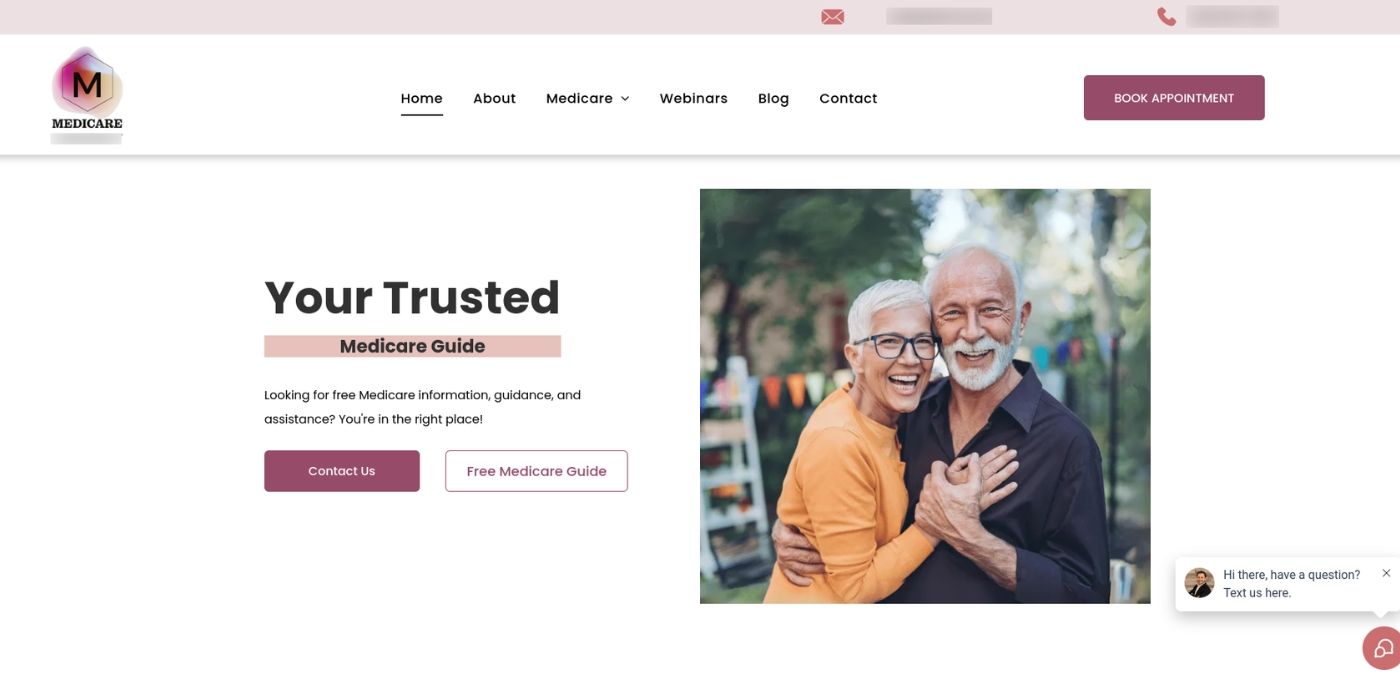
2. Google Business Profile (GBP): Capturing Local Searches
Your Google Business Profile is critical for appearing in local searches and Google Maps results. A fully optimized GBP allows prospects to find your agency and trust its credibility.
Steps to Optimize Your GBP:
- Fill in every field: Business name, address, phone number, hours, and a detailed description with keywords like “Medicare services.”
- Add photos: Showcase your office or team to personalize your brand.
- Actively request reviews: Positive reviews are one of the most influential factors for ranking higher and building trust.
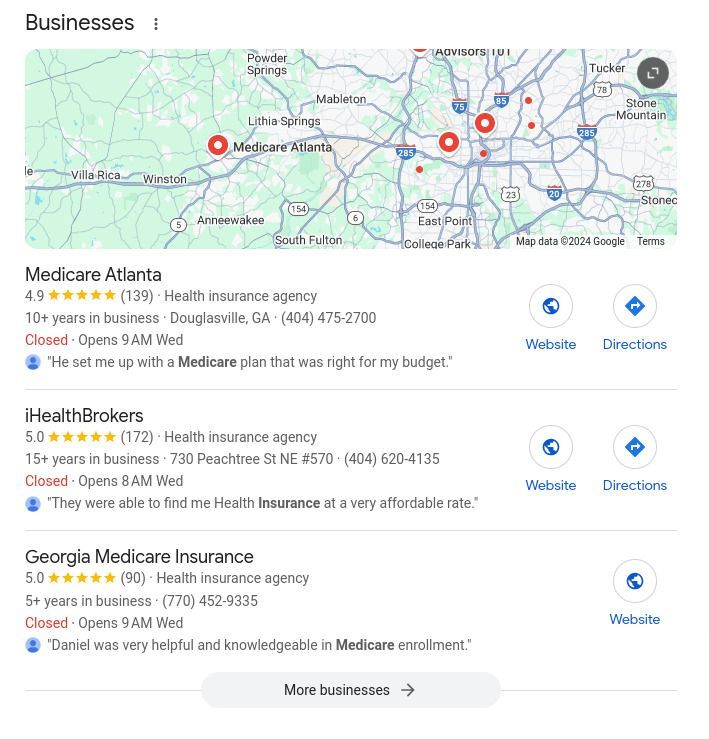
3. Local SEO: Targeting Nearby Prospects
Local SEO helps you attract Medicare prospects in your area through organic search results. While search volume for local Medicare-related searches can be lower compared to other industries, targeting terms like “Medicare agents near me” or “Medicare enrollment help in [City]” can capture high-intent leads.
Key Tactics:
- Use location-specific pages on your website.
- Include keywords naturally in your content, headers, and image alt text.
- Build local citations by listing your business on platforms like Yelp, Bing Places, and other directories.
SEO Tip: Create a blog post answering common Medicare questions in your area to rank for "People Also Ask" in search engine results.
4. Reviews: Social Proof That Builds Trust
Most people read reviews before choosing a Medicare agent, and a strong collection of positive feedback can give you a significant edge.
How to Get More Reviews:
- Ask satisfied clients right after closing a policy.
- Make it easy by sending them a direct link to your GBP or review platform of choice.
- Respond to reviews (positive and negative) to show you value client feedback.
Pro Tip: Avoid incentivizing reviews, as it can violate platform policies. Instead, focus on providing excellent service that naturally motivates clients to leave glowing testimonials.
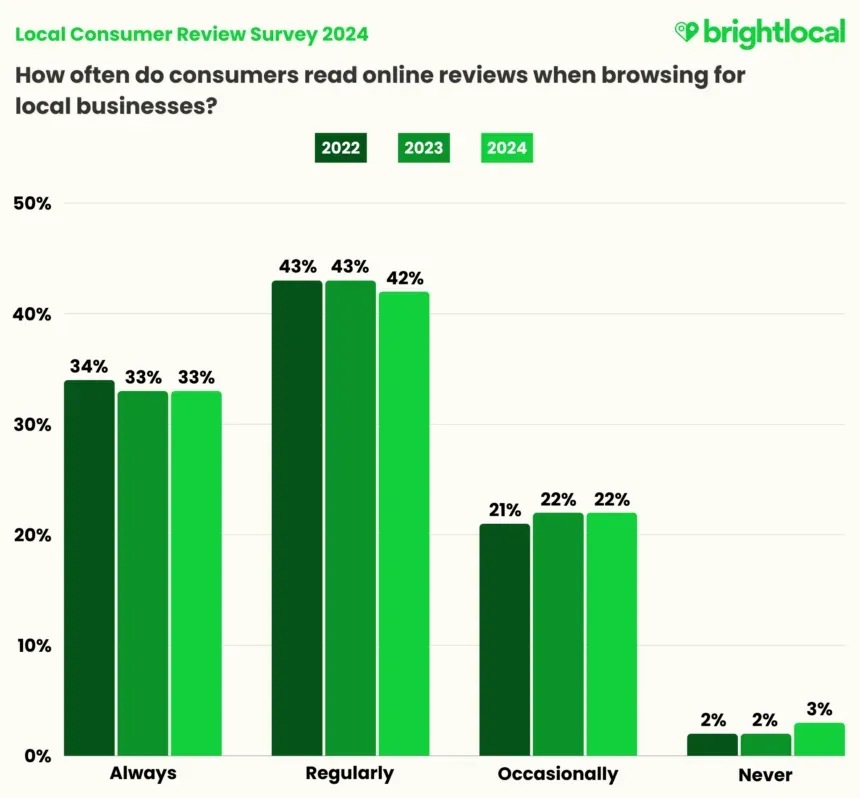
5. Email Marketing: Turning Leads Into Loyal Clients
Most Medicare agents overlook email marketing, but it’s a highly effective way to stay connected with leads and clients.
Why Email Marketing Matters:
- It keeps your agency top-of-mind with valuable, consistent communication.
- It’s cost-effective, with an ROI of $36 for every $1 spent.
- It builds trust by educating your audience with useful content like enrollment deadlines, plan comparisons, and FAQs.
Best Practices:
- Segment your email list (e.g., seminar attendees, current clients, referrals) for personalized campaigns.
- Use a professional email platform to automate follow-ups and nurture sequences.
- Keep your content engaging with clear CTAs, helpful tips, and occasional promotional offers.
A strong foundation in Medicare marketing not only makes your campaigns more effective—it ensures your business is set up for sustainable, long-term growth.
By investing in your website, optimizing local search efforts, and leveraging tools like GBP and email marketing, you’ll be well-positioned to outpace your competitors and attract the right prospects.
Evaluating Paid Advertising Channels
Paid advertising is a powerful tool for Medicare agents, but its success depends on more than just the platform you choose—it also hinges on the campaigns you run and the strength of your offers. Below, we break down the most popular paid advertising channels for Medicare marketing, highlighting what works, what doesn’t, and how to maximize your results.
1. Medicare Facebook Ads: The Foundation of Paid Campaigns
Facebook remains one of the most versatile platforms for Medicare marketing. However, the success of your campaigns hinges on the offer and campaign type you choose, not just your targeting or ad creative.
Campaign Types and Results:
- Seminar Invitations: These campaigns consistently provide the most reliable and scalable results. Adding a free meal to your seminar offer can significantly increase attendance and improve the cost-effectiveness of your campaign.
- Medicare Consult Campaigns: These can work initially to drum up leads but are typically less consistent long-term due to trust barriers. They’re better suited for retargeting campaigns to an already engaged audience.
- Lead Magnets (e.g., Guides and Quizzes): Effective for building an email list but often result in leads that require significant nurturing before converting.
Key Insights:
- Why Seminars Work Best: Seminar campaigns offer a strong, low-pressure value proposition that stands out in a crowded market. Unlike direct appointment requests, seminars allow you to establish trust before asking for a commitment.
- Offers Matter More Than Creative: The strength of your offer—like providing a free meal—has a bigger impact on results than the ad copy or images themselves.
Best Practice: Prioritize seminar campaigns as the foundation of your Facebook strategy. They offer the highest reliability and scalability, especially when paired with strong offers like free meals.
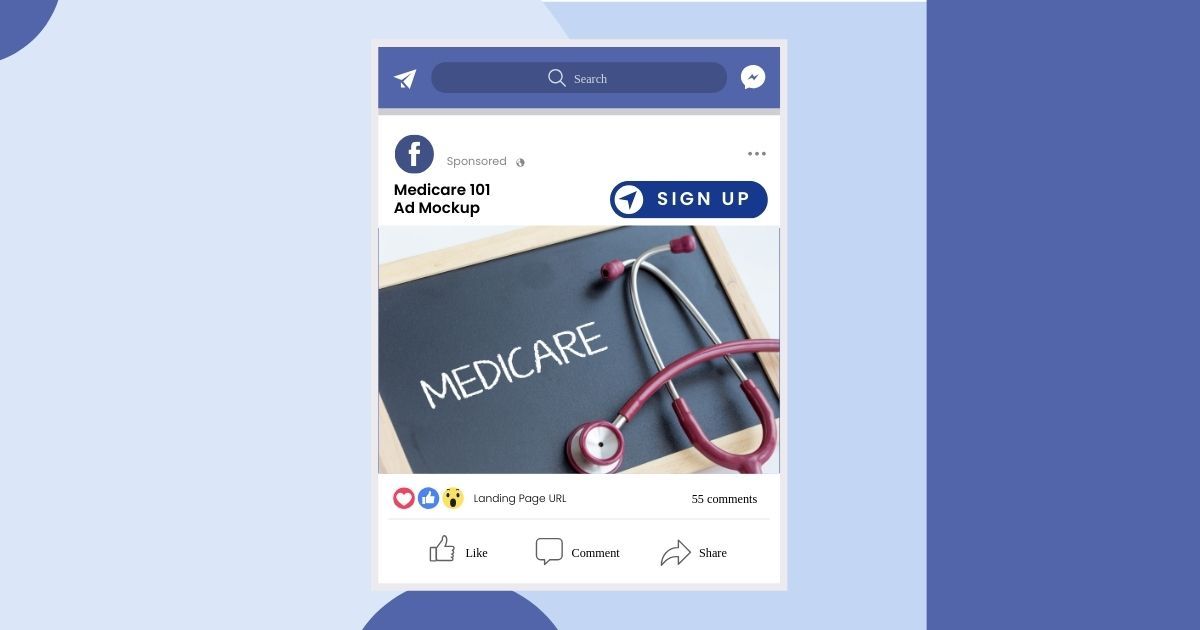
2. Google Ads (Pay-Per-Click): For High-Intent Leads
Google Ads offers unparalleled access to leads actively searching for Medicare solutions. However, the competitive nature of this platform means higher costs and the need for a well-optimized strategy.
Campaign Types and Results:
- Medicare Enrollment Help: Keywords like “Medicare plans near me” or “Medicare Advantage plans in [City]” attract high-intent prospects.
- Challenges: These campaigns often struggle against large healthcare companies with massive budgets, driving up the cost per click (CPC).
Key Insights:
- Conversion Optimization is Critical: Since CPC is high, every click must count. Landing pages should include clear CTAs and trust-building elements like testimonials or certifications.
- Focus on Long-Tail Keywords: Target phrases with lower competition, such as “Understanding Medicare Advantage in [City].”
Best Practice: Use Google Ads for specific, high-intent keywords. Consider supplementing these efforts with retargeting ads on Facebook to maximize ROI.
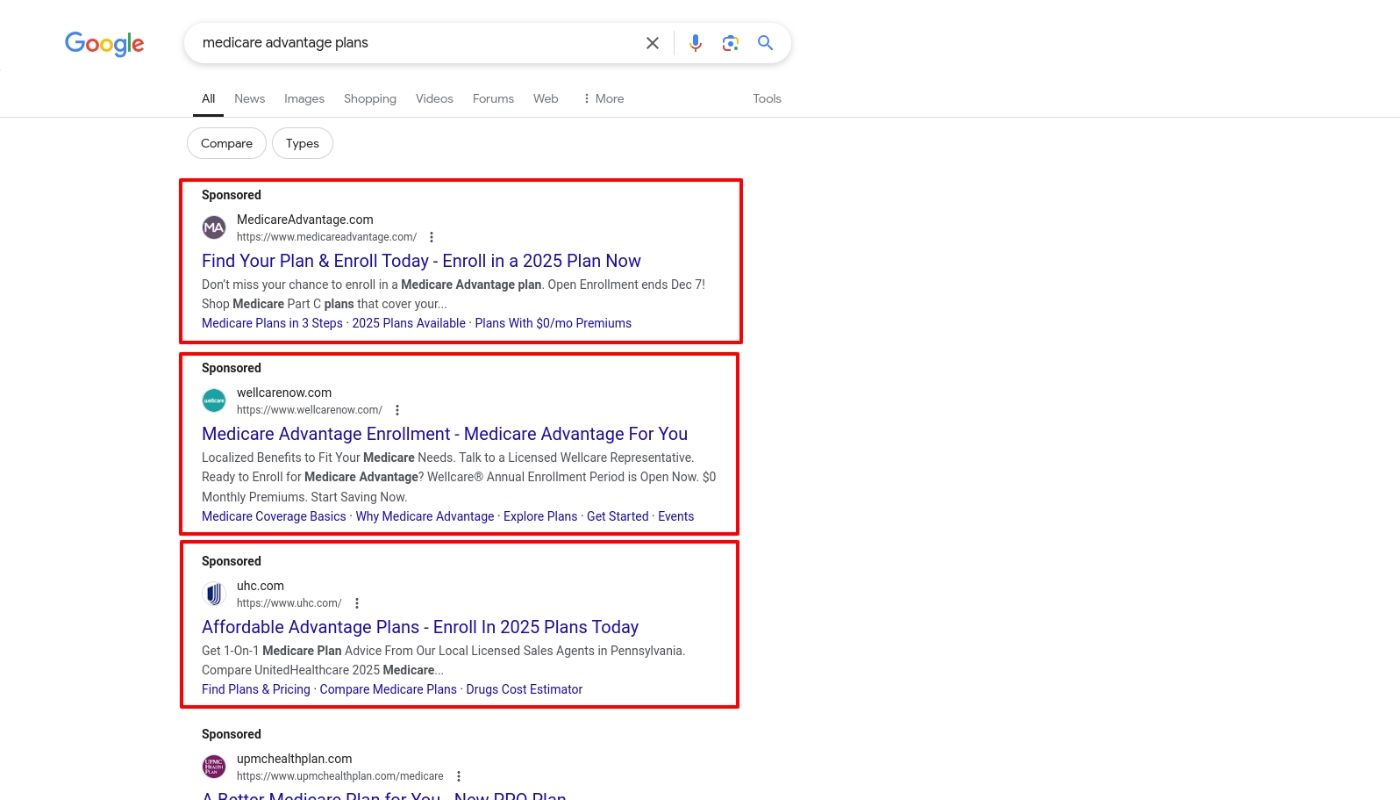
3. YouTube Ads: A Supplemental Option
YouTube ads can work for Medicare campaigns, but they’re typically less scalable due to audience limitations for localized targeting.
Campaign Types and Results:
- Webinars and Seminars: Video ads perform well for promoting webinars or virtual seminars.
- Educational Content: These ads can help explain complex Medicare topics in a visual format, building trust with viewers.
Key Insights:
- Local Targeting Limitations: The 64+ audience on YouTube often isn’t large enough to sustain ongoing campaigns without higher costs and lower lead volume.
- Production Doesn’t Have to Be Expensive: Simple, well-scripted videos recorded on a smartphone can perform just as well as polished, high-budget productions.
Best Practice: Use YouTube ads as a supplemental strategy, especially for building awareness or testing new markets.
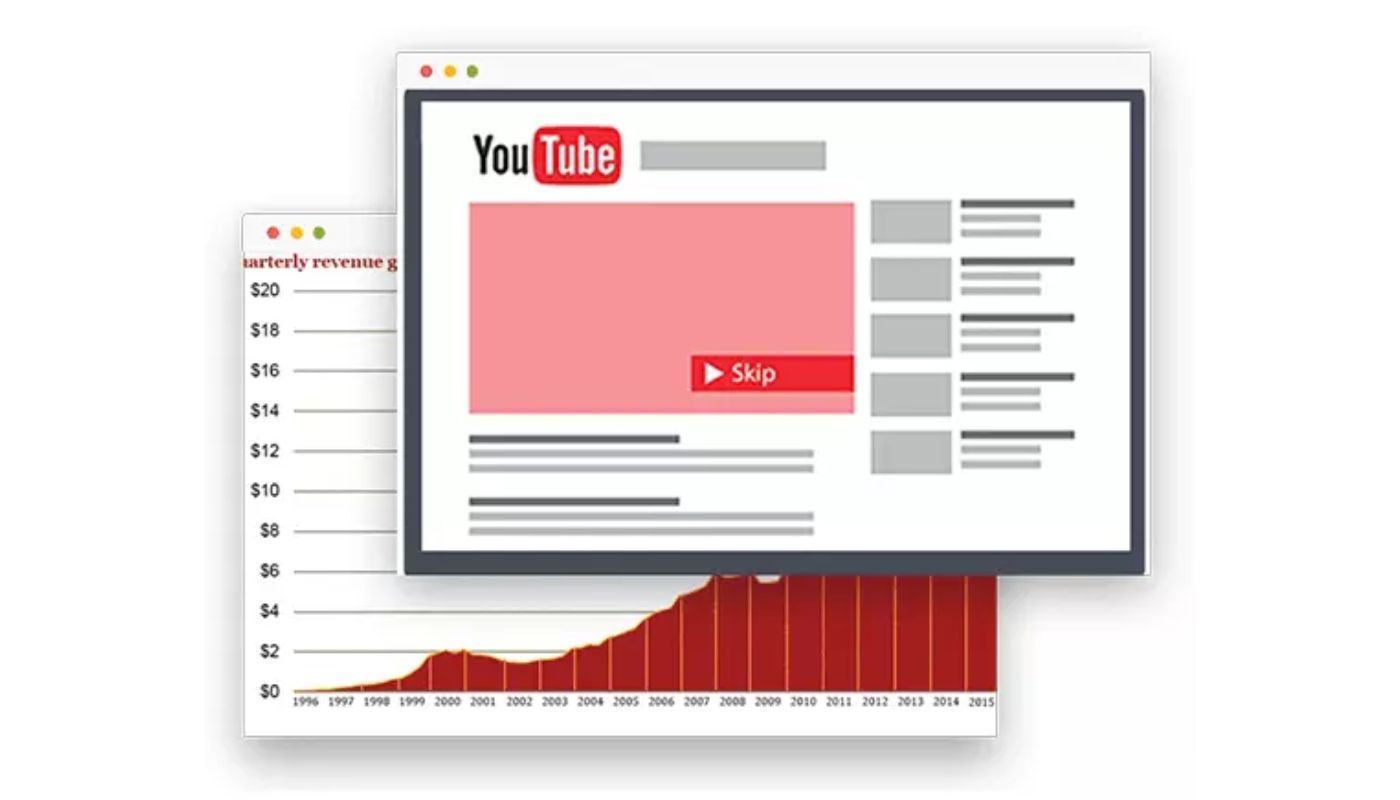
4. Direct Mail: Reliable but Rising Costs
Direct mail remains a widely used method for Medicare marketing, but its cost-effectiveness is declining. Rising postage and printing costs, combined with lower response rates, mean agents often need to send more mail to achieve the same results.
Campaign Types and Results:
- Seminar Invitations: Educational seminars are typically the strongest offer for direct mail campaigns. Their low-pressure nature appeals to recipients and generates higher response rates than direct appointment requests.
- Appointment Requests: While still used, direct mail campaigns focused on booking appointments tend to struggle due to trust barriers and the “salesy” perception of the offer.
Key Insights:
- Rural Areas vs. Urban Markets: Direct mail tends to perform better in rural areas, where there’s less competition from other marketing channels. In urban areas, digital campaigns like Facebook and Google Ads often deliver better results at a lower cost.
- Costs Are Rising: The rising cost of postage and printing means agents must send more mail to achieve similar results, making direct mail a less viable long-term option for many.
Best Practice: Focus on direct mail for seminar RSVPs in rural areas where it remains a competitive channel. Avoid relying on direct mail exclusively in urban markets due to higher costs and increased competition from digital strategies.
5. Purchased Leads: A Starting Point
For new agents, purchasing leads from vendors can be a quick way to build an initial client base. However, it’s not a sustainable long-term strategy.
Key Insights:
- Lead Quality Varies: Many purchased leads are unresponsive or low quality, requiring significant effort to convert.
- Shared Leads: Some vendors resell the same leads to multiple agents, increasing competition for those contacts.
Best Practice: Use purchased leads to get started and build your book of business if needed. Transition to more reliable strategies, like seminars and paid ads, as soon as you can.
Paid advertising offers a range of options for generating Medicare leads, but the key to success lies in matching your campaigns to the right offer. Seminar campaigns consistently provide the strongest results across both digital and direct mail channels, offering a compelling, low-pressure value proposition that helps build trust with prospects.
As costs for direct mail rise and digital platforms evolve, it’s increasingly important to align your strategy with your business goals and budget.
The Untapped Potential of Email Marketing
Email marketing is one of the most underutilized tools in Medicare marketing, yet it consistently delivers some of the highest returns on investment. With proper strategy and execution, email campaigns can keep you top-of-mind, nurture relationships, and convert leads into loyal clients. It’s also an invaluable tool for retaining current clients, ensuring they continue to see you as a trusted resource while opening opportunities for referrals.
1. Why Email Marketing Matters for Medicare Agents
Email marketing offers a direct and cost-effective way to engage both new leads and existing clients. Here’s why it’s a game-changer:
- Incredible ROI: Email marketing boasts an average ROI of $36 for every $1 spent, making it one of the most cost-effective channels available.
- Lead Nurturing: While other campaigns generate leads, email allows you to develop those relationships over time with consistent, personalized communication.
- Retention Tool: For existing clients, email is invaluable for maintaining trust, providing ongoing support, and even generating referrals.
- Builds Trust: Regularly providing valuable, educational content reinforces your expertise and keeps you top-of-mind when it’s time for clients to make decisions.
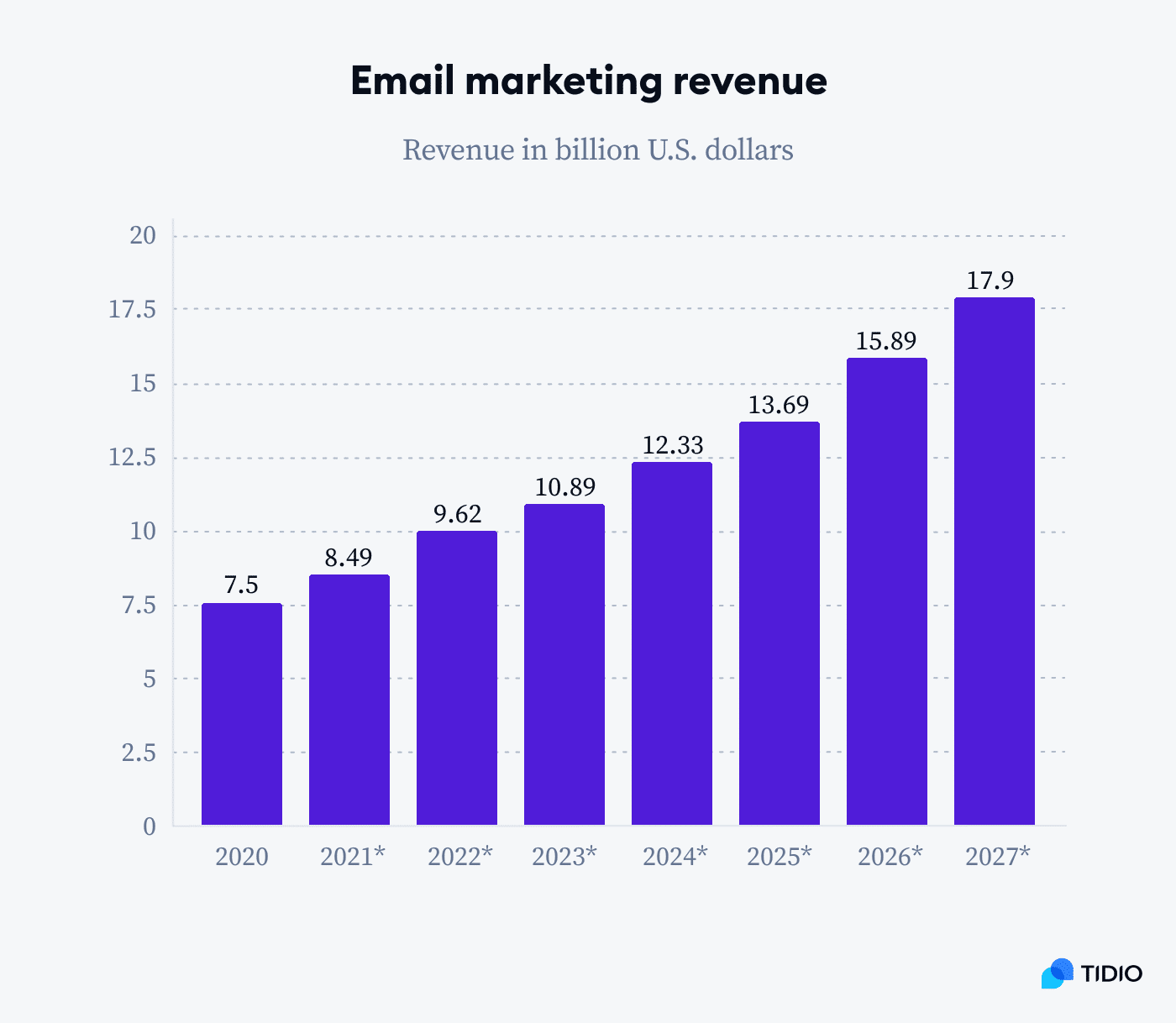
2. Building a High-Quality Email List
The success of email marketing starts with your list. The better the quality, the better your results.
How to Build Your Email List:
- Seminar Attendees: Collect emails at in-person or virtual events. Follow up with those who attended and those who registered but didn’t show up.
- Lead Magnets: Use free resources like “Medicare 101 Guides” or “5 Common Medicare Mistakes to Avoid” as incentives for prospects to subscribe to your list.
- Website Opt-Ins: Include prominent email capture forms on your website with enticing offers. For example, “Subscribe to Get Free Medicare Updates and Tips.”
Keep It Permission-Based:
Never purchase email lists. Purchased lists often result in low engagement, high spam complaints, and damage to your sender reputation. Focus on building your list organically through ethical means.
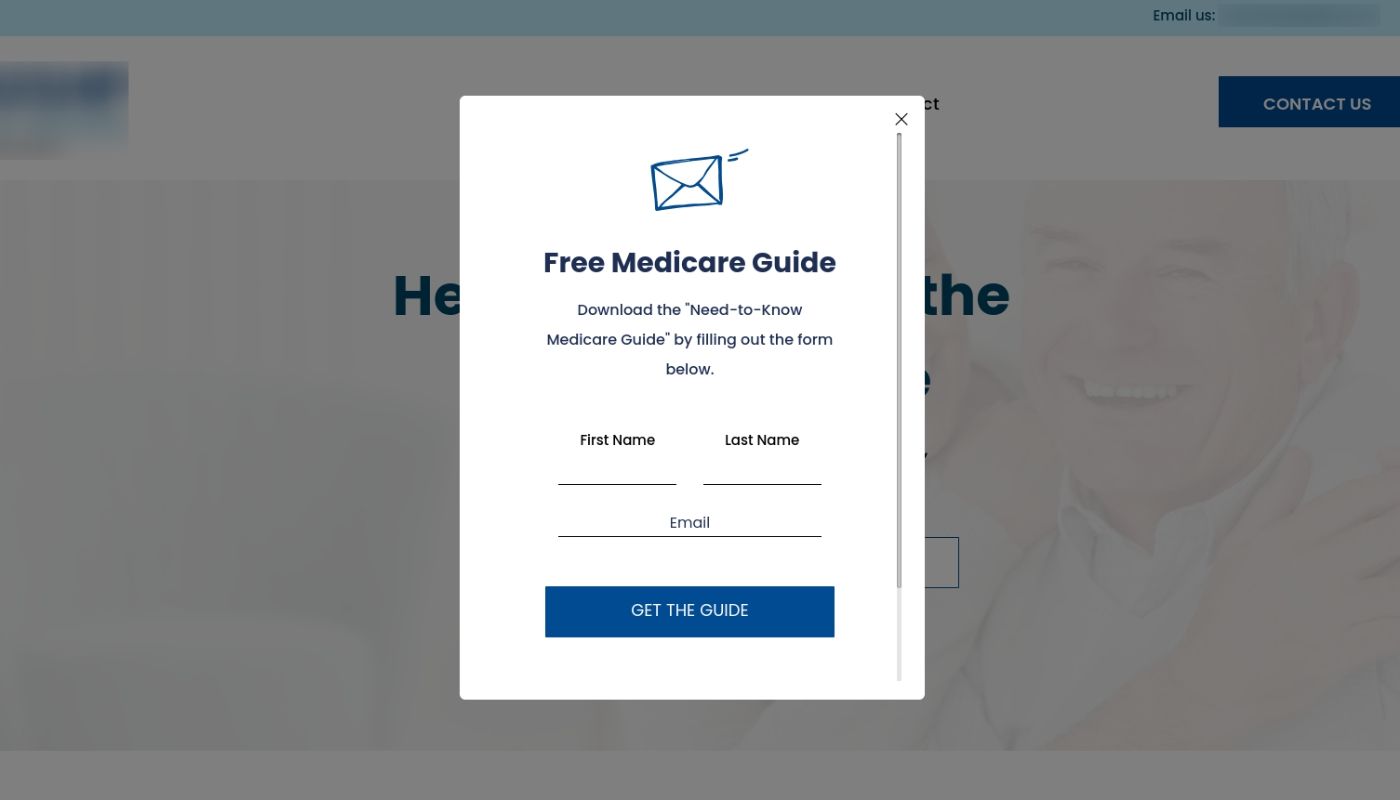
3. Crafting Effective Medicare Email Campaigns
Email marketing isn’t just about sending messages—it’s about sending the right messages to the right people at the right time.
Types of Emails to Send:
- Educational Newsletters: Share tips, plan comparisons, and key Medicare updates. Example: “Everything You Need to Know About Open Enrollment.”
- Event Follow-Ups: After a seminar, send a follow-up email thanking attendees and providing additional resources or scheduling links.
- Retention Emails: Periodically check in with existing clients to offer reviews or help with questions. This reinforces trust and opens opportunities for referrals.
- Deadline Reminders: Send emails reminding leads of important dates, like the Annual Enrollment Period (AEP).
Best Practices:
- Segment Your List: Categorize your email list into groups like engaged leads, current clients, or seminar attendees. Tailor your messaging based on their needs—for example, providing plan comparison guides to leads while sending policy review reminders to existing clients.
- Clear CTAs: Always include a strong, easy-to-spot call-to-action like “Schedule Your Free Medicare Review Today.”
- Consistency is Key: Create a schedule for regular emails, whether weekly or bi-weekly, to maintain engagement without overwhelming your audience.
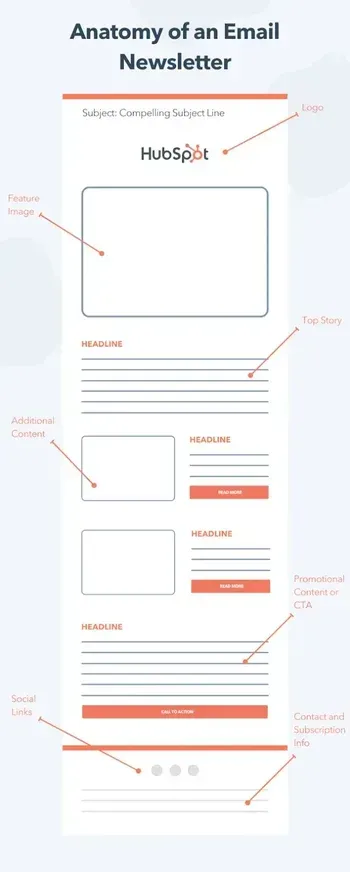
4. How Email Marketing Complements Other Channels
Email isn’t meant to replace your other marketing efforts—it’s designed to amplify them.
- Follow-Up on Facebook Ads: Retarget your Facebook ad leads with an email series to nurture them toward conversion.
- Reinforce Seminar Campaigns: Use email to remind registrants about upcoming events and provide post-event follow-ups to attendees.
- Drive Website Traffic: Include links to new blog posts, plan resources, or landing pages to keep prospects engaged with your online presence.
Key Insight: Think of email marketing as the glue that holds your campaigns together, ensuring no lead or client slips through the cracks.
5. Measuring Success: What to Track
Effective email marketing relies on continuous improvement. Track these key metrics to evaluate and refine your campaigns:
- Open Rate: Aim for at least 20-25%, depending on your audience.
- Click-Through Rate (CTR): The percentage of recipients who clicked a link in your email (target ~3-5%).
- Conversion Rate: How many recipients took the desired action (e.g., booking a consultation).
- Unsubscribe Rate: A low unsubscribe rate (<1%) signals your emails are relevant and valuable.
Pro Tip: Test different subject lines, CTAs, and content formats to improve engagement over time.
Email marketing is one of the most powerful yet overlooked tools in Medicare marketing. By consistently delivering value to your subscribers and staying top-of-mind, you can build stronger relationships, nurture leads more effectively, and ultimately convert more prospects into clients.
Success with email marketing requires patience and consistency—it’s not a “set it and forget it” strategy but a long-term investment in your business’s growth.
Why Ethical Marketing Matters
In Medicare marketing, ethical practices are more than just the right thing to do—they’re the foundation of trust, credibility, and long-term success. Seniors value transparency and education, and ethical marketing ensures you stand out in a crowded field by meeting these needs authentically.
1. Building Trust with Prospects
Seniors are often overwhelmed by Medicare options and wary of misleading claims. Ethical marketing helps establish trust by focusing on clear, transparent communication.
- Transparency Wins: Explain your services clearly and avoid sensational tactics like “Social Security owes you money.”
- Authenticity Matters: Use real testimonials and avoid exaggerated claims about savings or benefits.
- Educate First: Provide value through education rather than pushing hard for immediate appointments.
Pro Tip: Ethical marketing positions you as a trusted resource, encouraging referrals and repeat business.
2. Why Spammy Tactics Backfire
Misleading or fear-based tactics may grab attention but harm your reputation and can even lead to compliance issues.
- Examples: Promising “free money” from Social Security, vague direct mail about government programs, or guaranteeing savings without understanding the client’s needs.
- Risks: Lost trust, regulatory violations, and lasting damage to your reputation.
Pro Tip: Focus on clear, factual messaging that empowers prospects to make informed decisions.
3. The Competitive Advantage of Ethics
In a crowded market, ethical marketing sets you apart. Clients appreciate honesty, and competitors using aggressive tactics often alienate prospects.
- Stronger Referrals: Satisfied clients are more likely to recommend your services.
- Higher Retention: Ethical practices build loyalty and reduce client turnover.
- Positive Reputation: Transparency and honesty attract high-quality leads.
Pro Tip: Use client reviews and testimonials to showcase your commitment to ethical practices.
4. Practical Steps to Ethical Medicare Marketing
- Use Clear Messaging: Avoid jargon and focus on educating prospects about their Medicare options.
- Respect Privacy: Always obtain consent and honor opt-out requests.
- Stay Compliant: Familiarize yourself with Medicare marketing regulations to avoid penalties.
Pro Tip: Approach every campaign with the mindset of an educator, not a salesperson, to build trust and credibility.
Ethical marketing builds trust, fosters loyalty, and establishes a sustainable business model in Medicare marketing. By focusing on transparency, education, and compliance, you can attract high-quality leads, retain clients, and stand out as a trusted advisor in a crowded market.
Building a Comprehensive Medicare Marketing Strategy
A successful Medicare marketing strategy combines the trust-building power of seminars with the efficiency of digital tools to create a seamless, scalable system. By leveraging the best of both approaches, you can streamline your operations, maximize your reach, and deliver consistent results.
1. Combining Seminars with Digital Tools
Seminars are one of the most reliable ways to generate high-quality Medicare leads. When paired with the right digital tools, their effectiveness increases significantly, allowing you to manage campaigns more efficiently and improve lead conversion rates.
Why Seminars Work
- Builds Trust: An in-person, educational environment helps establish rapport and makes prospects feel comfortable.
- High-Quality Leads: Seminars attract highly engaged attendees who are likely to book follow-up appointments.
- Proven Results: Educational events, especially when paired with strong offers like a free meal, consistently deliver reliable attendance and lead conversion rates.
How Digital Tools Elevate Seminars
- Streamlined Registrations: Tools like Eventfull simplify the RSVP process with online forms, ensuring accurate contact data collection.
- Automated Reminders: Reduce no-shows by using email and SMS tools to send timely reminders leading up to your seminar.
- Follow-Up Campaigns: After the seminar, use email and text sequences to thank attendees, share additional resources, and encourage appointment bookings.
- Scope of Appointment (SOA) Management: Simplify compliance with tools that automate SOA collection and secure storage.
Pro Tip: Use tools to automate repetitive tasks like registration tracking and reminder emails, so you can focus on delivering a great seminar experience.
2. Leveraging Tools for Operational Efficiency
Managing Medicare campaigns at scale requires more than just good planning—it demands the right tools to streamline your operations and keep everything running smoothly.
Key Areas Where Digital Tools Help
- Lead Tracking: Use a CRM system to monitor where leads are in your sales funnel, segment audiences, and identify high-priority follow-ups.
- Scheduling Appointments: Tools like Eventfull’s integrated appointment scheduler allow prospects to book consultations directly after a seminar or from follow-up emails.
- Automated Communications: Send tailored follow-ups, such as appointment confirmations, birthday greetings, and nurture sequences, without lifting a finger.
- Data Compliance: Medicare marketing requires strict adherence to regulations. Tools that securely handle SOAs, personal data, and client communications ensure you stay compliant without manual effort.
Efficiency in Action:
- After a seminar, use an email sequence to reach out to attendees and no-shows with a simple call-to-action: “Book Your Free Medicare Review.”
- Leverage analytics from your CRM to understand which touchpoints (emails, texts, or follow-up calls) result in the highest appointment rates and optimize accordingly.
Pro Tip: Operational tools are not just conveniences—they’re essential for scaling your business without sacrificing quality or compliance.
3. Crafting a Sustainable Hybrid Strategy
Combining seminars with digital tools isn’t just a marketing tactic—it’s a scalable system that aligns your offline efforts with modern, automated workflows.
Steps to Build Your Strategy:
- Start with Seminars: Host in-person events with a clear educational focus and a strong offer to attract prospects (e.g., a free meal to drive attendance).
- Integrate Digital Tools: Automate RSVP tracking, reminder campaigns, and post-event follow-ups to ensure no lead slips through the cracks.
- Focus on Conversion: Use appointment scheduling tools to make it easy for attendees to book a consultation.
- Refine and Repeat: Analyze data from your campaigns to improve processes and optimize performance for future seminars.
Pro Tip: A hybrid strategy ensures you engage prospects at every stage of their journey, from initial awareness at your seminar to follow-up conversions.
A comprehensive Medicare marketing strategy seamlessly integrates the trust-building power of seminars with the efficiency of digital tools.
By combining the personal touch of in-person events with the automation and compliance features of tools like Eventfull, you can attract more qualified leads, simplify your operations, and scale your business effectively.
Success comes from balancing these components into a system that works for your unique goals and market.
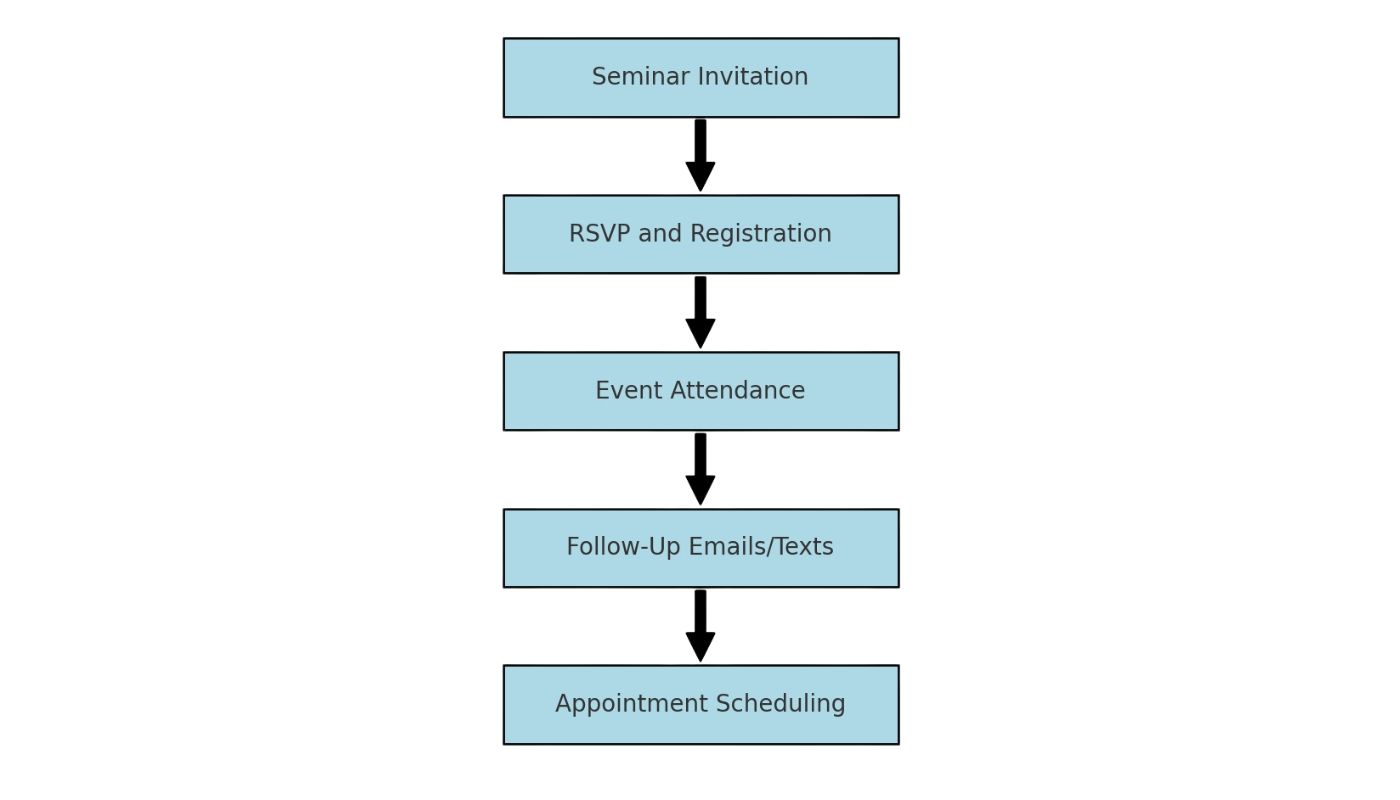
Case Study: Transforming an Agency Owner's Growth with Seminar Marketing
Paul Zobel, an agency owner with American Senior Benefits, partnered with Keywave Digital to test the power of seminar marketing for scaling his Medicare sales efforts. Starting with a solo trial, Paul quickly saw success and scaled the system to support 15+ agents, creating a consistent pipeline of qualified leads while automating key processes.
Key Results:
- 3,987 RSVPs generated across 238 events in 2023.
- 730 Medicare Advantage and 220 Medicare Supplement plans sold.
- Seamless scalability to support a growing team of agents with minimal extra effort.
Paul’s experience exemplifies the effectiveness of seminar marketing in delivering consistent, high-quality leads while saving time and effort.
Take Your Medicare Marketing to the Next Level
Building a thriving Medicare business doesn’t happen by accident—it requires a strategy that’s reliable, scalable, and tailored to your unique goals. By combining trust-building seminar marketing with a rock-solid online foundation, you can consistently attract high-quality leads, streamline your operations, and create a system that works for you year after year.
If you’re ready to take control of your marketing, grow your client base, and build a sustainable business, we’re here to help. Whether it’s implementing a proven seminar marketing solution or creating an online presence that converts visitors into leads, Keywave Digital has the expertise to make it happen.
Book a Call Now and let’s discuss how we can help you scale your Medicare business with confidence.

